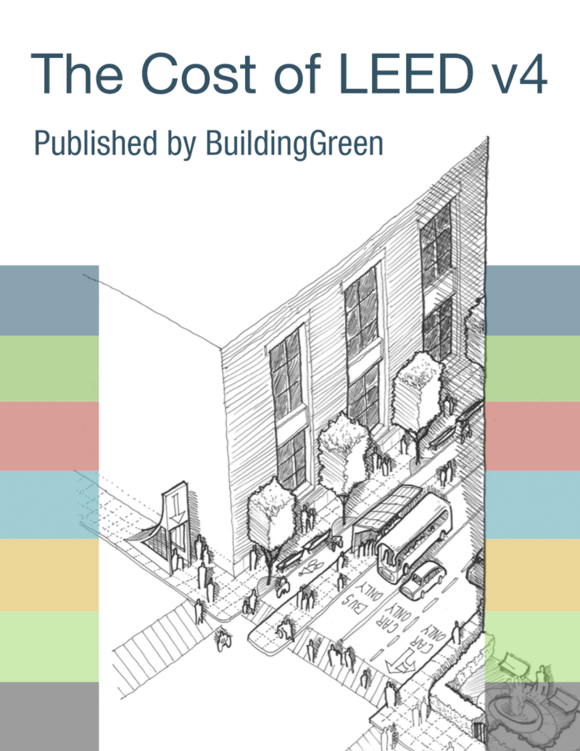Add the following language under Guidance:
"Behind the Intent
Beta Update
Specific criteria for the glazing characteristics have been added to address challenges with determining acceptable levels of clarity, frits, fibers, patterns, tints and to minimize conflicts with the Pilot Credit for Bird Collision Deterrence.
The view requirements were also revised to better differentiate criteria for view content from criteria for view access and to eliminate potentially redundant requirements.
The requirements for healthcare have been revised for clarity.
Step-by-Step Guidance
Step 1-3. Refer to these steps in the LEED v4 reference guide
Step 4. Identify Site Lines to the Exterior
On floor plans or furniture plans, identify the locations of perimeter and interior glazing and all permanent interior obstructions.
• Determine whether the perimeter and interior glazing meets the credit requirements for VLT, frits/patterns, and tints.
o Recommended frit patterns to reduce bird collisions and preserve quality views are no thicker than 1/8 inch (3.175 millimeters) and spaced every 2 inches (5.08 centimeters) vertically and 4 inches (10.16 centimeters) horizontally.
• Identify permanent interior obstructions (see Definitions in the LEED v4 reference guide). Small vertical and horizontal features are acceptable per the credit requirements.
Movable furniture and partitions as well as movable glare control devices may be included, but this is not required.
• Consider performing an initial rough assessment before performing detailed assessment of view quality. Determine whether the regularly occupied floor area with proximity to
vision glazing is at least 75% of the total regularly occupied flor area.
Step 5. Assess View Quality
Identify whether the view includes nature, urban landmarks or art, or objects at least 25 feet (7.5 meters) from the exterior of the glazing.
Step 6. Confirm Compliance
Complete the tracking table to confirm that at least 75% of the regularly occupied floor area has access to a quality view. For warehouses and distribution centers and Healthcare projects, See Further Explanation, Rating System Variations section in the LEED v4 Reference Guide. "
Under Further Explanation, add:
"Healthcare projects refer to the following sections in the LEED v4 Reference guide: Calculations perimeter area, special considerations for healthcare projects,
Required Documentation
List of regularly occupied spaces, qualifying floor area in each space, and view features
Sections, elevations, diagrams, renderings, or photos indicating sight lines to glazing do not encounter permanent interior obstructions
Floor plans or diagrams identifying the views to nature, urban landmarks, or objects at least 25 feet (7.5 meters) accessible to the occupants.
Glazing specifications confirming compliance with VLT, frit/pattern, and tint requirements.
"



